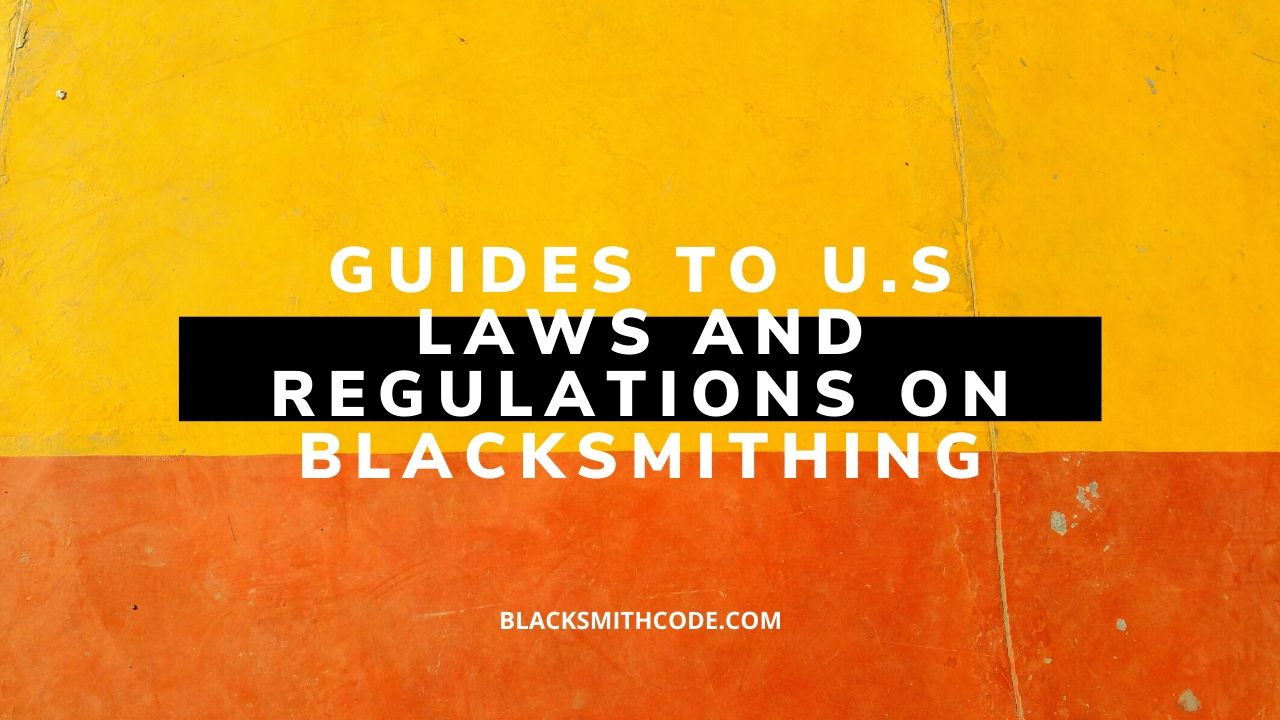Some specific legal rules and standards guide every profession in the United States. The laws are aimed at regulating the working procedures and activities of blacksmiths to conform to all legal standards. This guide will help you not violate the fundamental human rights of people around them and break blacksmith forge laws.
The laws in the United States can be divided into three levels which include;
Local Laws
Local laws usually guide the city and county. It is a restricted law that covers a precise town or cities. And county that falls within the same border range.
State Laws
The state laws cover a more extensive range than the local laws and it helps to understand certain blacksmith forge laws. Individual states in the United States have rules that are modified to maintain order within the boundaries of the states.
Federal Laws
The federal laws in the United States are the apex laws, and all their rules are subjected to it. The federal laws guide the entire borders of the United States, including all states, counties, and cities.
The first thing to know is that there are no federal laws in the United States that specifically talk about the licensing or work regulations of blacksmithing. Therefore, there are no specific blacksmith forge laws. However, some local and state laws give specific rules and regulations that guide the entire blacksmithing process. Depending on your location, the ordinary rules in the United States that guides and regulates blacksmithing activities include:
Getting a Business and Sales Tax License
If you would publicly or privately sell goods or offer services, you might be necessary to get a professional working license. This will help the local authorities collect taxes and also allows you to carry out legal activities surrounding business.
Local Environment Protection Authorities [EPA] Regulation
The federal authorities in charge of preserving the environment might be concerned about your coal burning, and fume releasing activities. Your burning activities must conform to the regulation of EPA. Your actions should not contribute to environmental damage; pollute the environments, or be dangerous to the health of the people around your blacksmithing shop.
Insurance policies
In some locations in the United States, you might be required to get business liability insurance. Especially if you run a big blacksmithing business, you need to understand this blacksmith forge laws.
Open Flame Regulation
Open flame ordnances apply in some locations within the United States. It is mainly applicable to those that make use of coal forge and work in a public space. This open flame, however, exempts cooking in most locations.
Blacksmithing Licensing
Blacksmithing licensing is quite different from a general business license. Some places in the United States explicitly authorize blacksmiths, just like other professional jobs. They often check out for qualification, quality of equipment, practical skills, and other essentials before giving out the license.
Conclusion
There is no location or business without laws, and it is best to understand those laws before proceeding with your blacksmithing processes. To be on a safe side, you should hire a local lawyer if you run or intend to run a significant blacksmithing business or blacksmithing school. The local lawyers can also provide you with copies of blacksmith forge laws and ordinances.

